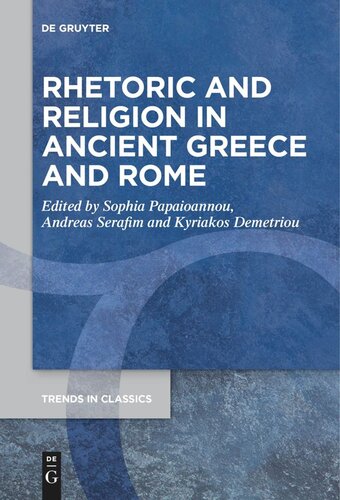

Most ebook files are in PDF format, so you can easily read them using various software such as Foxit Reader or directly on the Google Chrome browser.
Some ebook files are released by publishers in other formats such as .awz, .mobi, .epub, .fb2, etc. You may need to install specific software to read these formats on mobile/PC, such as Calibre.
Please read the tutorial at this link: https://ebookbell.com/faq
We offer FREE conversion to the popular formats you request; however, this may take some time. Therefore, right after payment, please email us, and we will try to provide the service as quickly as possible.
For some exceptional file formats or broken links (if any), please refrain from opening any disputes. Instead, email us first, and we will try to assist within a maximum of 6 hours.
EbookBell Team

4.7
26 reviewsIt is perhaps a truism to note that ancient religion and rhetoric were closely intertwined in Greek and Roman antiquity. Religion is embedded in socio-political, legal and cultural institutions and structures, while also being influenced, or even determined, by them. Rhetoric is used to address the divine, to invoke the gods, to talk about the sacred, to express piety and to articulate, refer to, recite or explain the meaning of hymns, oaths, prayers, oracles and other religious matters and processes. The 13 contributions to this volume explore themes and topics that most succinctly describe the firm interrelation between religion and rhetoric mostly in, but not exclusively focused on, Greek and Roman antiquity, offering new, interdisciplinary insights into a great variety of aspects, from identity construction and performance to legal/political practices and a broad analytical approach to transcultural ritualistic customs. The volume also offers perceptive insights into oriental (i.e. Egyptian magic) texts and Christian literature.